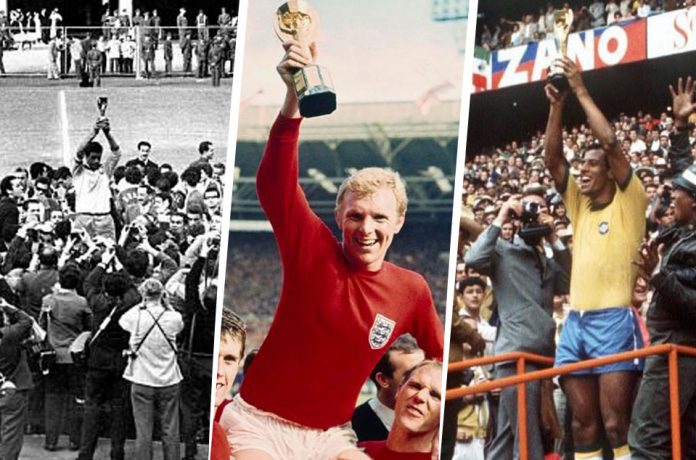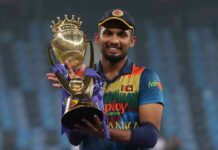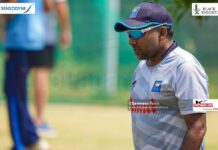The previous two articles featured the beginning and the early years of the FIFA World Cup. Since its inception, the early stages saw domination by Uruguay and Italy as formidable forces of world football.
FIFA World Cup – Journey through History (1950-1958)
Following its 1938 edition in France, the FIFA World Cup was halted for 12 years due to the Second World War.
West Germany emerged as new champions in 1954, giving the Hungarians heartbreak for the second time. After missing a golden opportunity to win on home soil in 1950, Brazil won their first ever title in 1958 beating hosts Sweden along with the emergence of Pele, perhaps the greatest to grace the game.
Brazil wins consecutive titles – 1962
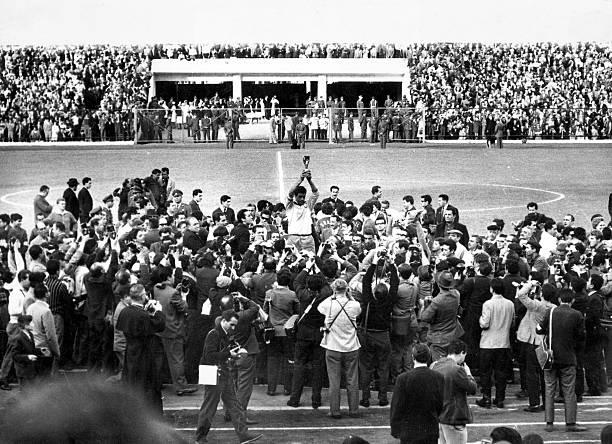
Sixteen teams took part in the tournament, all from the Americas and Europe, which makes Chile 1962 the last World Cup to feature teams from only those two regions. Colombia and Bulgaria made their debut. Four cities hosted the matches, Vina del Mar, Rancagua, Arica and the capital Santiago, which was also the venue for the finals.
Hungarian legend Ferenc Puskas, Jose Santamaria and Jose Altafini became three of four players to play on the big stage for two different national teams. In light of this, FIFA created stipulations describing that once a player represents a nation during a World Cup or its qualifying rounds, the player cannot switch to another national team.
Jose Altafini represented the Brazilian winning team in 1958 as ‘Mazzola’, but played for Italy in 1962 stating that “Brazil never called overseas based players; it wasn’t me who left Brazil. It was Brazil that left me”. Puskas represented Spain while Santamaria who previously played for Uruguay, wore the Spainish jersey this time.
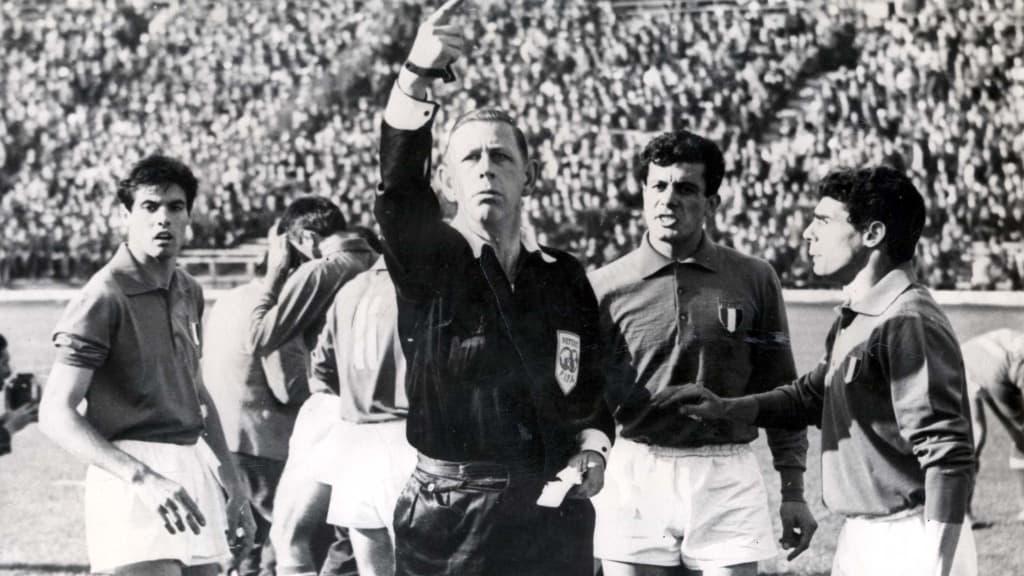
For the record, Chile won 2-0. The referee Ken Aston later went on to invent Yellow and Red Cards to maintain the discipline of players during a game.
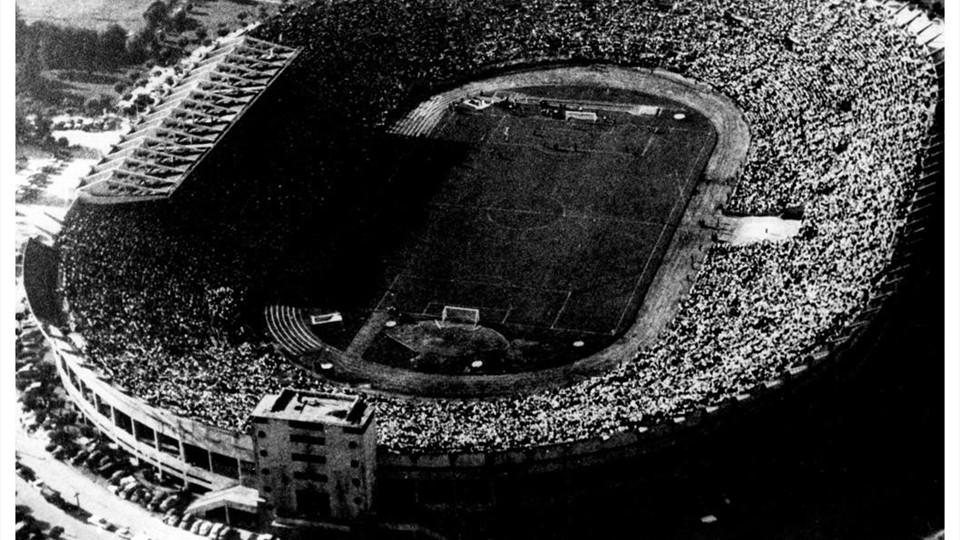
entered the finals beating hosts Chile 4-2, while Czechoslovakia beat Yugoslavia 3-1 to enter their second final in history.
The Estadio Nacional in Santiago on 17th June 1962 witnessed Brazil winning consecutive titles. An early goal by Czechoslovakia was undone as Brazil countered with 3 goals. Mauro Ramos, the skipper lifted the Jules Rimet trophy, just as his predecessor Hilderaldo Bellini. Bellini, who led the Brazilians in 1958, was also a part of the winning team this time.
Garrincha, his fellow teammate Vava, Leonel Sanchez (Chile), Florian Albert (Hungary), Valentin Ivanov (USSR), Drazan Jerkovic (Yugoslavia) all ended up with 4 goals being joint-top scorers for the tournament. Chile 1962 became the first tournament to denominate all tickets in USD and the last World Cup which could not be televised live in Europe.
Inventors of the game finally taste success – 1966
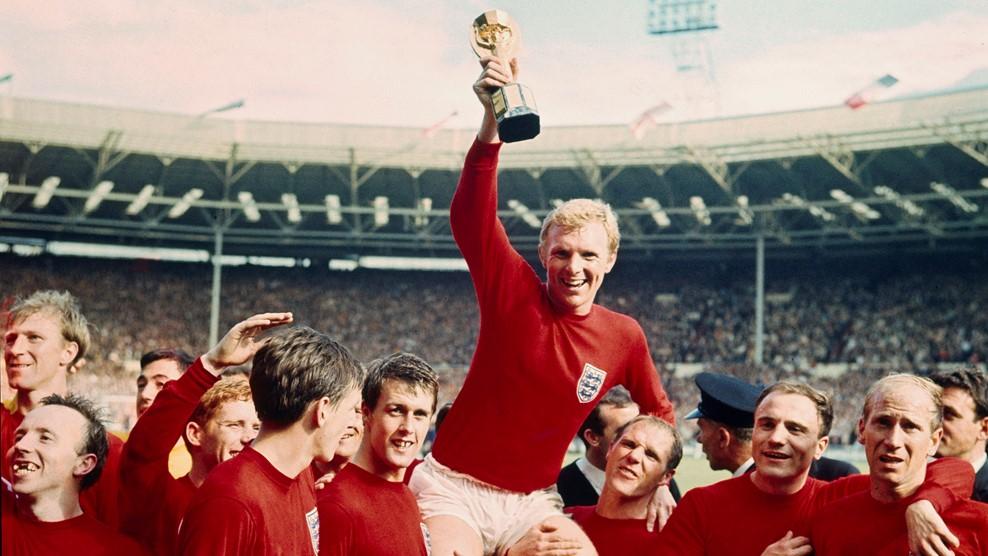
The tournament began inauspiciously as the Jules Rimet trophy was stolen from a public exhibition in London three months prior to the event. However later it was found by a dog named ‘Pickles’ in a London suburb during a walk with his master David Corbett.
England 1966 also saw the first World Cup mascot, a lion named ‘World Cup Willie’. Eight venues in 7 cities hosted games while London comprised of two locations, Wembley and White City Stadium.
The defending champions got off to a decent start as they beat Bulgaria 2-0 at Goodison Park with Pele and Garrincha doing the scoring. By doing so, the pair became the first ever players to score in three successive World Cups.
After being injured against Bulgaria, Pele missed Brazil’s 3-1 loss to Hungary. Inspired by Florian Albert the top scorer in the previous tournament, the Hungarians handed over Brazil their first defeat since 1954.
The loss was soon followed by another defeat to Portugal by the same score line. The reigning European Footballer of the year Eusebio netted twice for Portugal, sealing the fate of the defending champions.
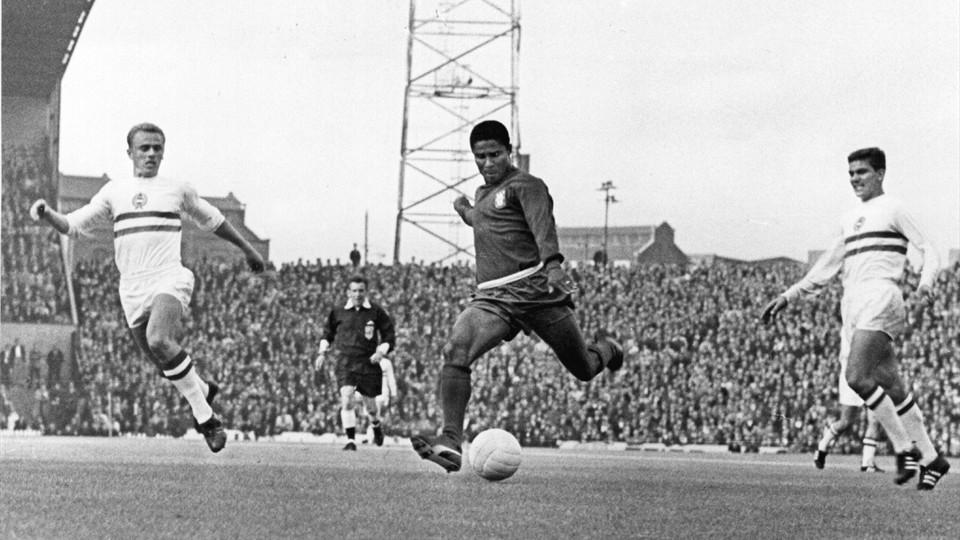
Ayresome Park, Middlesbrough, North Korea created one of the biggest upsets as they beat Italy 1-0 to progress to the next round. This was the first time that a nation from outside Europe or the Americas had progressed from the first stage of a World Cup, until Morocco did so in 1986.
During the quarterfinals, North Korea threatened Portugal with an early 3-0 lead but Eusebio’s skills resulted in a 5-3 score at full time in favour of Portugal with the ‘Black Panther’ netting four goals.
England, after beating Argentina in the quarterfinals, met Portugal’s strike force. The Portuguese who had scored at least 3 goals in every game and a total of 14 in 4 games went down to the Englishmen as Bobby Charlton scored twice in a close encounter at Wembley.
The other semi-final also finished 2-1 as Franz Beckenbauer scored the winning goal with a left foot shot from the edge of the area for West Germany as they beat the Soviet Union.
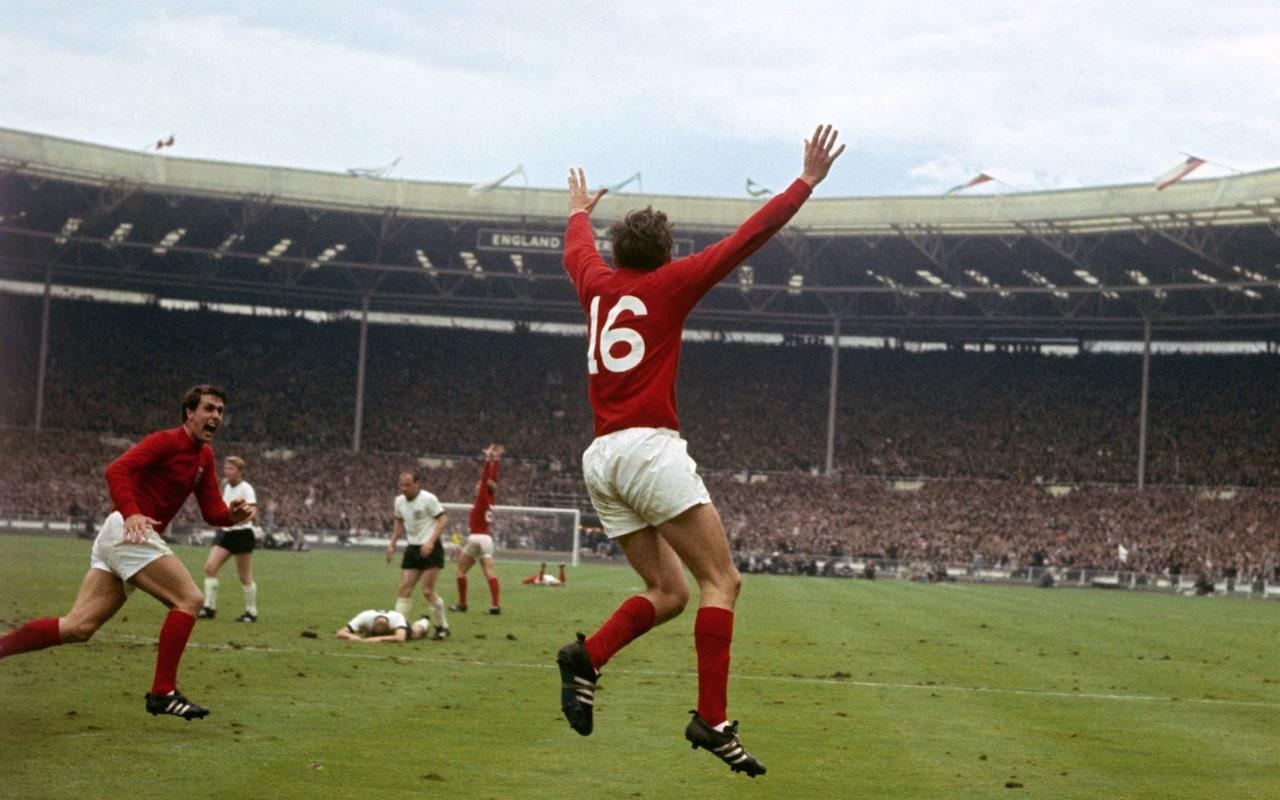
The final at Wembley saw 98,000 spectators gather to watch a tight contest between the home team and West Germany.
After Helmut Muller put the Germans ahead in the 12th minute, Geoff Hurst and Martin Peters made the score 2-1 in favour of the English. Wolfgang Weber silenced Wembley with an 89th minute equalizer just when the hosts, leading through goals by Hurst and Peters, seemingly had the game.
The game went to extra time as the scores were leveled at 2-2. Hurst found himself on the scoresheet again as his shot hit the crossbar, bounced down onto the goal line, and was awarded as a goal. Debate still remains as to whether the ball crossed the goal line. However, Hurst sealed the win with a hat-trick later to bring England their first ever title.
Geoff Hurst became the only player to score a hat-trick in the World Cup finals. Skipper Bobby Moore received the trophy from Her Majesty Elizabeth II, as the ‘Three Lions’ were crowned world champions for the first time. Eusebio with 9 goals earned the Golden Boot. The 1966 finals in Wembley was the last to be televised in black and white.
Brazil keeps the Jules Rimet in perpetuity – 1970
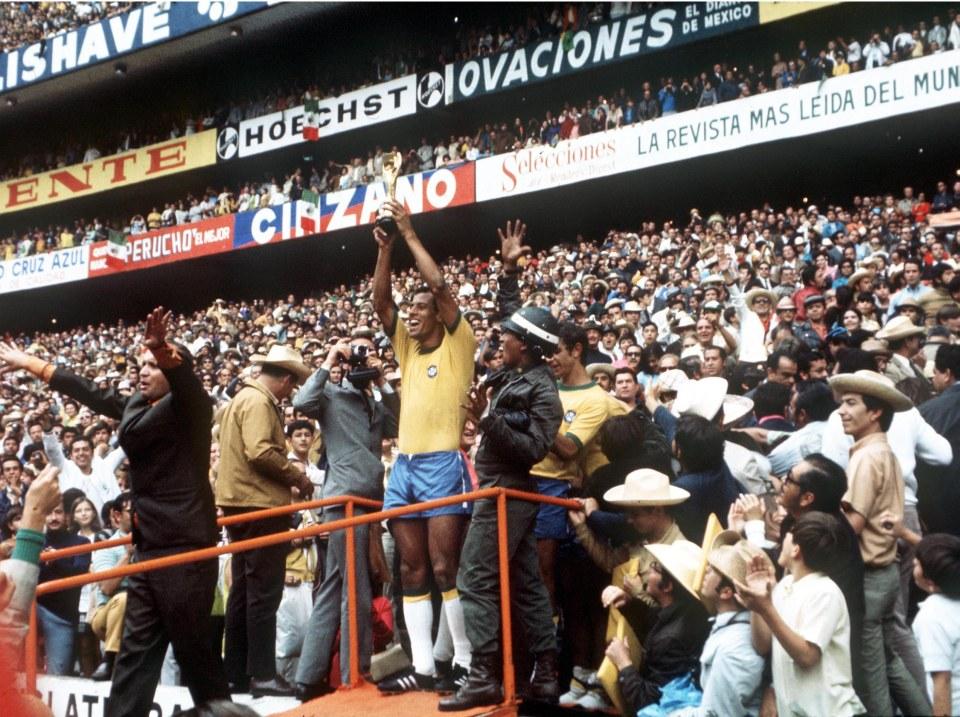
The World Cup tournament moved for the first time outside Europe and South America, as Mexico hosted it in 1970. Also for the time, the FIFA World Cup was broadcast in colour around the globe as millions watched captivated as Brazil added brilliance with a magnificent exhibition of attacking football earning them a third crown.
Despite being eliminated from the first round in the previous World Cup, Brazil fielded arguably the greatest national team in the history of football. Paired with Pele for the charge, Jairzinho scored in every game, a record yet to equalized. Gerson, Tostao and Rivelino too joined the irresistible attacking momentum which Mario Zagallo’s men created.
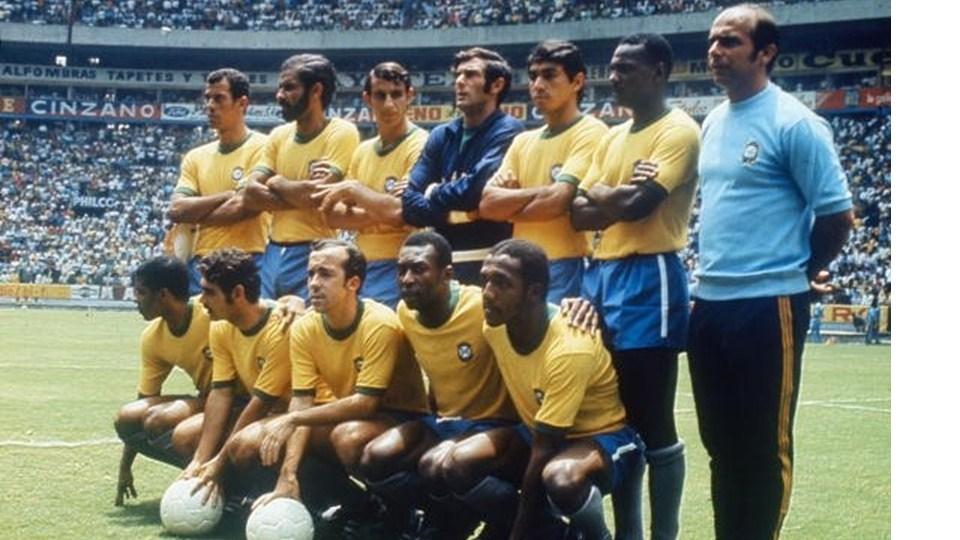
The high altitude and intense heat created tough conditions for the players, where many matches were kicked off at noon for the benefit of European television schedules. Toluca was the highest venue at 2660m while Guadalajara carried the lowest altitude at 1500m.
There were two substitutes allowed per team while red and yellow cards were introduced. Five cities hosted matches where most of the teams arrived early to get prepared for the high-altitude settings of the venues. During the opening game between Mexico and USSR, Anatoliy Puzach became the first non-injury substitute to be used in the World Cup.
During the group stage, holders England met Brazil where Jairzinho scored the winning goal after England squandered several excellent opportunities to equalize. Morocco became the first team to represent Africa since Egypt in 1934, while Gerd Muller scored two hat-tricks against Bulgaria and Peru.
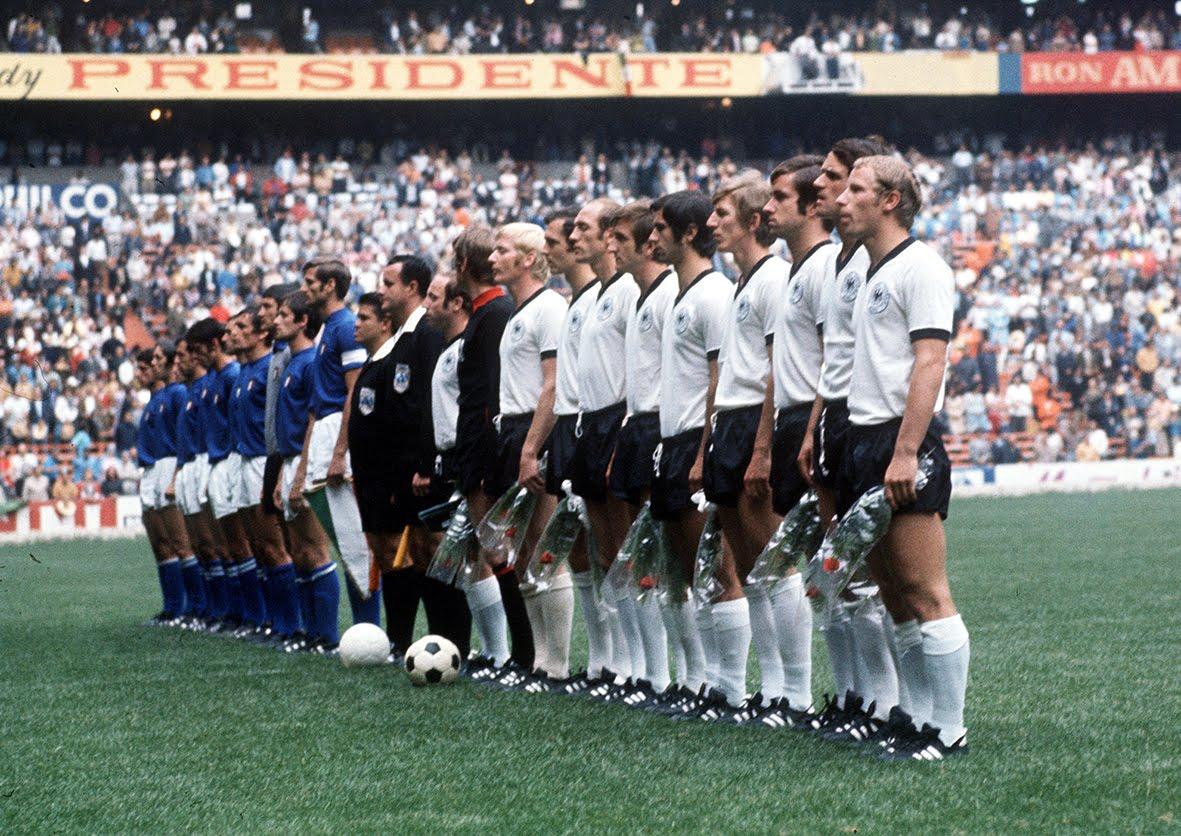
Riva scored for Italy in the 104th minute but Muller stepped up again in the 110th minute for West Germany. However, the extra-time thriller which was flooded with five goals was put to rest by Gianni Rivera in the following 111th minute, which eventually sealed the win and a place for Italy in the finals, their first since 1938.
Estadio Azteca, after the semi-final thriller, hosted the final between Brazil and Italy on 21st June. Brazil opened the scoring with Pele, but Boninsegna equalized. In the 66th minute, Gerson restored the lead for Brazil as they subsequently secured a 4-1 victory, recording their third World Cup win and earning them the right to permanently keep the Jules Rimet trophy.
Nothing captured the beauty of their play than the fourth goal scored by the captain Carlos Alberto which included a seven-man move and a thundering first-time shot into the far corner. It was the perfect finale for the all-time great Pele with a third World Cup crown, while Mario Zagallo became the first person to win the world cup both as a player and a coach.
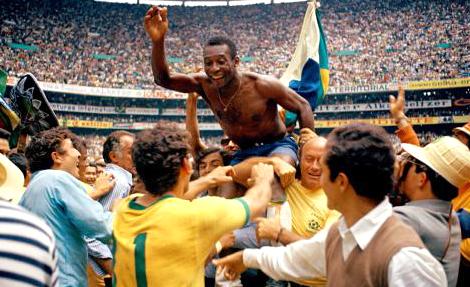
This champion team often cited as the greatest World Cup team, won all their six games along the way to the summit and also won every qualifying fixture they played. West Germany’s Gerd Muller, who was overshadowed by this epic performance by Brazil, won the golden boot with 10 goals, while Pele won the award for the best player. A new World Cup trophy was set to be designed for the 1974 tournament.
>> For more World Cup News Click Here <<


